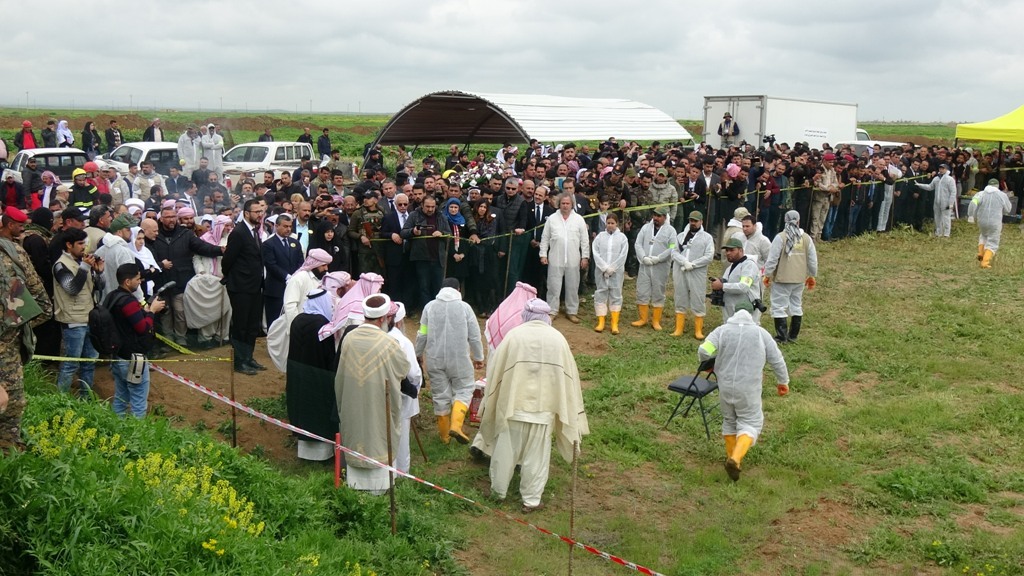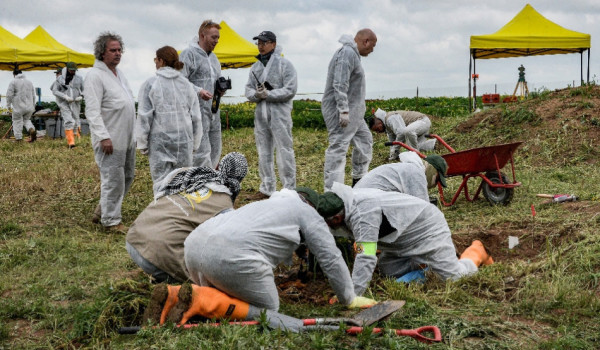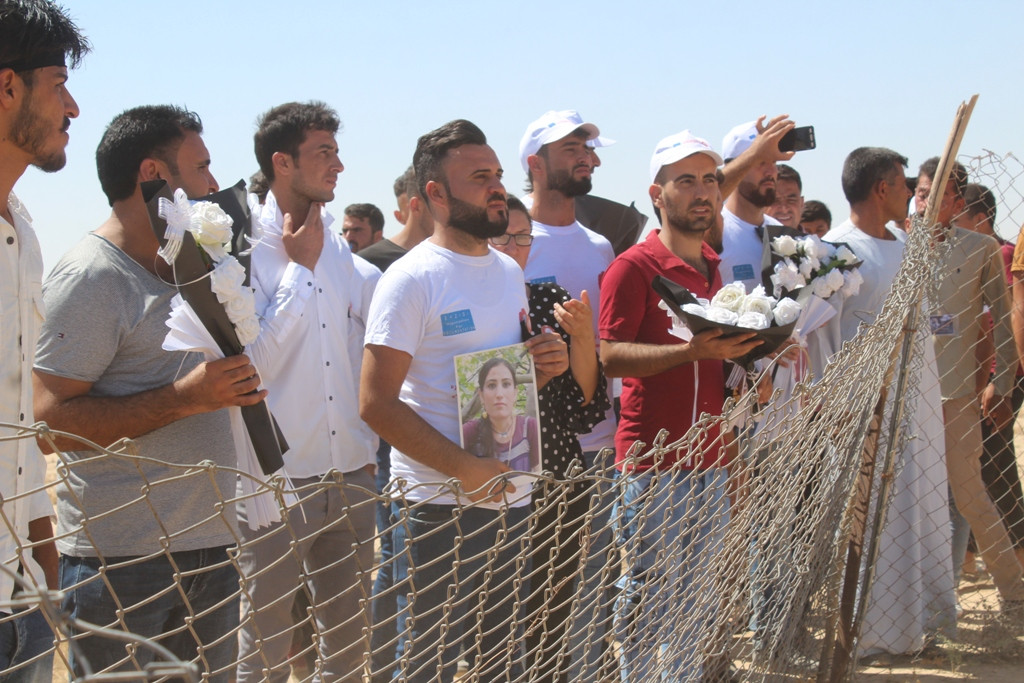The Iraqi government has delayed the excavations of the mass graves in Sinjar to March, while heavy rainfall has already uncovered surfaces of some of the mass graves and ruined the preparations made before. The delay has concerned the families of the victims.
Iraqi National Team, which is in charge of the excavation of the mass graves, stopped their work in Sinjar last July after the excavation of numerous mass graves in Kocho village and sent the remains to Baghdad for DNA tests.
Dawd Murad, head of public relations and media office of the Yazidi’s council for families of the victims, said, “excavation of the graves in Sinjar has stopped, but it continues in other places such as Samawa. It is questionable for us, and we think the victims have been disrespected.”
The National Team and the Iraqi government consider a lack of budget and the situation such as the social protests the government is facing as the reason for the halt of the excavations.
Murad asked, “why is there a budget for other mass graves but not for us? The situation in Sinjar is now better than the other areas in Iraq… we think the government is not telling the truths and gives excuses to convince us.”

On March 15, 2019, the first mass grave of Yazidi was excavated in Kocho village in Sinjar with the presence of the Noble Peace Prize Winner, Nadia Murad, and Baba Sheikh, the most senior Yazidi spiritual leader.
Falah Haasan, a member of the Iraqi National Excavation Team, said, “ the National Team worked in Sinjar for four months and later went back to Baghdad.”
Sixteen mass graves have been excavated in Kocho, and the remains of 234 persons have been discovered. Their remains have been sent to Baghdad for DNA tests.
“We are in contact with the National Team, but no time is set to them to come back to Sinjar… the situation and the protests in Baghdad is one of the reasons… but there is no issue in Sinjar, and everything is ready… the more it is delayed, the harder the excavations will become,” Hassan added.

Heavy rainfall has destroyed part of the preparations made for the excavations, and remains of the grave are visible.
Dawd Salim, the spokesperson of Kocho village, said, “60 percent of the preparations made for excavations of the mass graves are ruined by heavy rainfall. The graves have to be prepared once more.”
Salar Mahmood, an advisor to the Iraqi president, said, “DNA tests have been done to remains of 70 persons (found in Kocho mass grave), and the testing has not stopped at all, but because it is difficult and detailed, it will be delayed somewhat.”
“Pathologists in Baghdad do not only autopsy remains of the Yazidis. There are also other remains,” Mahmood said, “They do their work very properly.”
ISIS controlled Sinjar on August 3, 2014, and killed two thousand and 293 Yazidis. Still, the fate of thousands of them remains unknown, according to statistics of General Doctorate of Yazidi Affairs at the Ministry of Religious Affairs of the Kurdistan Regional Government (KRG).
Eighty mass graves are found in the Sinjar region, according to the KRG.





